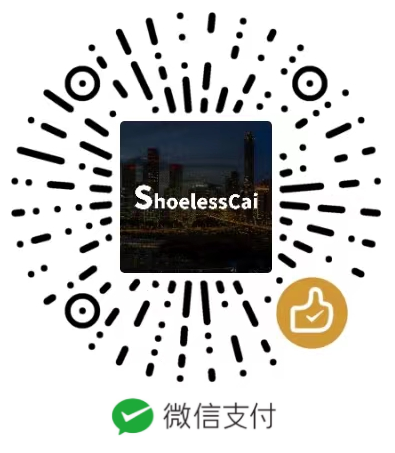
原标题:彭博推送 | 特朗普预期对中国征收 3 倍关税
本篇由 Jingyi 翻译,百度翻译助力。
翻译
快报
1.沙特阿拉伯皇子开派对,以证明他的远见,关于计划中的城市新毒素(Neom);
2.之前的彭博商业周刊:价值 5000 亿美元的抵押贷款支持证券(Mortgage backed securities,MBS),丢弃梦想,为了保持更加奇怪
3.特斯拉股票上涨,在制造商汇报了强劲收入,以及预测明年 30% 增长
4.英伟达 Jensen Huang 开启合伙制,和 Mukesh Ambani,在印度建造 AI 基础设施
Neom 新毒素
特朗普税收的幽灵若隐若现
就像回到黑夜(swallows),每年秋天,全世界财政部及中央银行的执行官,都会聚集在华盛顿,相互交换国债、利率,通胀及其他,这似乎是一种针对只会用电子表格的书呆子们的“快约会”。
今年的期待?尽管关于国际货币基金和世界银行的年会的官方议程主要由政策决定,蜷缩在一起的对话和走廊讨论全都是向激光一样专注在一个议题:特朗普。
specter 幽灵
huddled 蜷缩在一起
这是由于到访的财政外交官推断,副总统 Harris 的胜利代表了政策将继续延续拜登政府时候的,也就是一种延展,这对全球经济都是不意外的。前总统特朗普获胜,将会成为完全另一个故事,基于他的威胁,关于对中国征收 60% 税,同时其他国家是 20%。
IMF 已然使用周会,来警告:市场和政策制定者正在创造“高度不确定”的选举,基于交易优先权和候选人都如此鲜明地背道而驰。
这并非去华盛顿访问者这边的谈判优势(talking sides),他们苦于自己不是。但是,他们很清楚他们的顾虑,尽管对外发言都是非常谨慎的(guarded-diplomatic speak)。欧洲中央银行拉加德说到,无论谁获胜,我们都应该警觉,其结果是否会伤害到全球贸易。
talking sides 谈判优势
“关于限制和障碍时期,尚未是繁荣和全球领导力时期,因为无论谁是这个国家的总统。我认为,至少要记住这点。”拉加德说到,在周三晚的亚特兰大会议。
评论诸如“这是提醒”将投票人放置于威斯康星或者宾夕法尼亚,来实施其投票,(这一点)将回响至整个全球金融和贸易系统。特朗普和哈里斯,统计意义上,和其相像的投票人的一起的,每 7 个州统计一次,彭博新闻调研组说到。
reverberate 回响
Tim Adams 是国际金融机构的执行官,捕捉到镇上所有挂着外交牌照的黑色SUV内进行的对话。谈到 IMF 和世界银行,他说到,“人们很紧张,因为特朗普创造了很大的计划,以及他所提议的,特别是这周所针对的人群,与布雷顿森林机构80年的历史对立。”
black-out 全黑,停电
关于打印的重新兴起的故事
我想告诉你,关于打印媒体终结真的是夸张了,但是真相会略微复杂。许多出版社,20年前的拥挤的报摊、信箱真的已然全部关门,以及大多数剩余的都改变他们的商业模型,随着读者和广告的资本往线上迁移,通常都是减少他们的出版频次,或者索性全线电子化。Nast 曾是世界权威杂志的出版商,最高峰时候,对接超过 20 个出版社。现在也“不再是杂志公司”,依据 2022 年 CEO Roger 对外宣称,现在只出版 8 个标题。当然,改变已然波及你现在阅读的杂志,即彭博商业周刊,我们也每天出版线上新闻,7月的时候,我们重新开启月刊版本,这件事已经持续 94 年了。
打印行业的旧有的商业模型已然不适用,与之一起的还有大量发行量、文化普遍性。(这些)格式上更倾向于出现在高端互联网媒体之前的样子,留给人们一种这样的感觉:“超级市场收银台对话”,一堆低价打车票。但是,杂志仍然有机会,商业模式是糟糕的。一些出版社和品牌似乎正在识别出。几个跨越类别的标题,包括 领域和流、尼龙、Saveur、体育画报与副刊(Sports Illustrated and Vice),已然致力于重启他们之前抛弃的物理产品,2024 年的时候。小型的打印出版社(Small, print-forward indie publications),例如 Apartamento、 Bitter Southerner、 the Drift and HommeGirls,分别于其所在的细分领域持续腾挪出空间,自新冠肺炎疫情开始以来,每年都有数十家印刷业新贵加入。
Sports Illustrated and Vice 体育画报与副刊
Small, print-forward indie publications 小型打印出版社
eke out space 腾出空间
circulation numbers 发行量
bookazines 书呆子
they’ve been joined by dozens of print upstarts every year 每年持续有几家出版社加入
原文
In Brief
1.Saudi Arabia’s crown prince is throwing a party to prove his vision for the planned city of Neom.
2.Previously in Businessweek: MBS’s $500 Billion Desert Dream Just Keeps Getting Weirder.
3.Tesla shares climbed after the carmaker reported surprisingly strong earnings and forecast as much as 30% growth in vehicle sales next year.
4.Nvidia’s Jensen Huang struck a partnership with Mukesh Ambani to build out AI infrastructure in India.
The Specter of Trump's Tariffs Looms
Like returning swallows, every year in the fall finance ministers and central bank chiefs from around the world descend on Washington to swap notes on interest rates, inflation and more, a kind of speed dating for spreadsheet nerds.
Except this year. Although the official agenda at the International Monetary Fund and World Bank’s annual meetings is dominated by dry policy talks, the huddled conversations and corridor discussions are all laser-focused on one issue: Donald Trump.
That’s because the visiting financial diplomats reckon that a win for Vice President Kamala Harris would represent policy continuity from the Biden administration and, by extension, less of a shock for the global economy. A win for former President Trump would be a whole other story given his threats to impose goods tariffs of 60% on China and as much as 20% on everyone else.
The IMF has used this week’s meetings to warn that the election is creating “high uncertainty” for markets and policymakers, given the sharply divergent trade priorities of the candidates.
It’s not that the visitors to DC are taking sides—they’re at pains not to—but they’re making clear their concerns, through guarded-diplomatic speak. European Central Bank Chief Christine Lagarde said whoever wins the election should beware of hurting global trade.
“Periods of restrictions and barriers have not been periods of prosperity and strong leadership around the world, so whoever in this country is ultimately the president, I think, should at least bear that in mind,” Lagarde said during an event Wednesday at the Atlantic Council.
Germany’s finance minister, Christian Lindner, had a similar message. “Every kind of trade conflict harms both sides,” he told Bloomberg Television.
Comments like those are a reminder that when swing voters in Wisconsin or Pennsylvania cast their ballot, it will reverberate throughout the global financial and trading system. Both Trump and Harris are statistically tied among likely voters in each of the seven swing states in the Bloomberg News/Morning Consult poll.
Tim Adams, head of the Institute of International Finance, captured the conversation that’s going on inside all the blacked-out SUVs with diplomatic license plates around town. When it comes to the IMF and World Bank, he says, “people are anxious because Trump has made a lot of big proposals, and what he proposes, especially for this crowd this week, is counter to the 80 years of the Bretton Woods Institutions.”
Yes, a Digital Story About the Revival of Print
I’d love to tell you that reports of print media’s death have been greatly exaggerated, but the truth is a little more complicated. Many of the publications that crowded newsstands and mailboxes 20 years ago have indeed closed entirely, and almost all the rest have changed their business models as readers and advertising dollars have moved online, usually by reducing their publication frequency or going fully digital. Condé Nast, once the most powerful magazine publisher in the world and home to more than two dozen print publications at its peak, is “no longer a magazine company,” according to a 2022 declaration by its chief executive officer, Roger Lynch; it now prints only eight titles. Changes have, of course, come to the magazine you’re currently reading as well: Bloomberg Businessweek publishes every day online, and in July, we relaunched with a monthly print edition after 94 years as a weekly.
The old model of print is certainly gone, along with the massive circulation numbers and cultural ubiquity that the format enjoyed before the internet upended media and left us with supermarket-checkout-line gossip rags and “bookazines” of low-carb recipes. But an opportunity remains for magazines, business models be damned, and some publishers and brands seem to be figuring it out. Several titles across genres, including Field & Stream, Nylon, Saveur, Sports Illustrated and Vice, have committed to restarting their previously abandoned physical products in 2024. Small, print-forward indie publications, such as Apartamento, Bitter Southerner, the Drift and HommeGirls, continue to eke out space in their respective niches, and they’ve been joined by dozens of print upstarts every year since the beginning of the Covid-19 pandemic.
All of this may seem counterintuitive, but it makes more sense if you remember that people never stopped enjoying magazines, even as the economics of producing them got more tenuous.
原文链接
长按/扫码,有您的支持,我们会更加努力!


|
